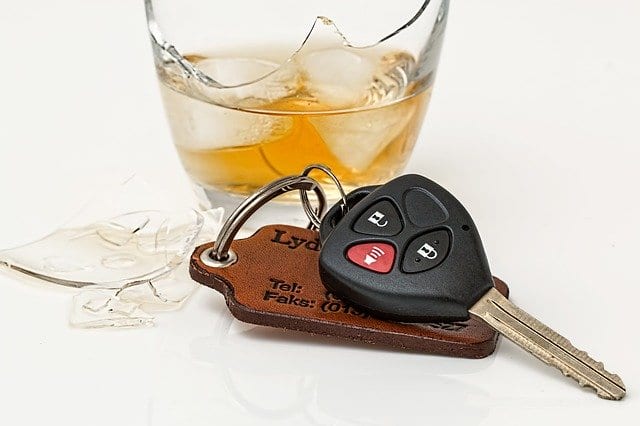
I just read Rod Dreher’s unbelievably racist, ugly, self-satisfied essay “Moral Order and Civil Conflict” in The American Conservative. I don’t reccommend you do the same, but I do want to talk about just one bit of it because Rod has accidentally beautifully illustrated how white privilege works.
The article itself is dreadful. It’s long-winded, pompous, light on actual facts, and overtly rather than casually racist. I’m not even going to do one of my now-famous paragraph-by-paragraph takedowns because I am disgusted beyond measure. I’m not going to waste time fact checking his claims about Breonna Taylor, Jacob Blake and George Floyd; others are doing that. Indeed, the article itself looks as though it has already had to be updated with corrections at least once– curiously, with a line through the erroneous sentence instead of deleting and posting a retraction at the bottom.
In brief, “Moral Order and Civil Conflict” asserts that black people need to learn to obey the rules and comply with the police so that they will not be shot, just as white people like Rod do. White people like Rod do this because they have better families and grow up learning to follow rules instead of view everything as doomed from the get-go. Rod traces this back to West Africa and how much worse people are there, in his opinion, than in Egypt; he speculates that, although there are many Christians in West Africa, the Christianity must not have sunken in and eradicated their Pagan-ness enough. “I’m making a sociological claim here, not a theological one,” says Rod, as if that makes any difference.
He finishes up with a rant against liberals and how they never seem to expect people to suffer the consequences of their immoral actions. He even manages to get a dig in against gay people dying of AIDS in the 80s. Rod is a man who likes to see people suffer proportionate consequences for their sins. He makes that abundantly clear. He even likes it when people suffer the consequences for their ex-boyfriend’s sins: because that, amazingly, is how he reasons away the killing of Breonna Taylor.
In the middle of this shocking and yet somehow predictable rant, Rod includes an anecdote from his youth, ostensibly to demonstrate what a good man his father was. This paragraph might be the most telling and educational part of the whole article.
Here it is in full:
“He taught us to stay away from drugs, because they would ruin your life. Alcohol was permitted in his world, but drunkenness was taboo. A man who can’t hold his liquor is shameful, he believed. When I was arrested as a college freshman for drunk driving, the shame of it was what upset him so much. Look at you, with your name in the newspaper, disgracing the family. You were raised better than that.”
What’s that, Rod?
You were arrested for drunk driving in your Freshman year of college?
When you were eighteen, right? Your Wikipedia page says you were born in 1967 got your BA in 1989, which if you took the usual four years would make you eighteen in the freshman year. It’s illegal to buy alcohol before you’re twenty-one. But as a teenager, you not only got tipsy but sloppy drunk enough that a cop pulled you over, checked your breath, and placed you under arrest?
That’s shameful.
That’s more than shameful, it’s immoral. Saint Thomas Aquinas says that drunkenness is a mortal sin. I know you’re not Catholic anymore, but still. Besides, getting behind the wheel while drunk means you put every other soul on the road in danger of their lives. There could have been a pregnant woman or a mom pushing a pram on the side of the road; you could have swerved and slaughtered them. You could have put somebody in a coma or chronic pain, or paralyzed them for life. Not to mention the property damage you could have caused. Conservatives are big on property damage these days. You could have gone right through a plate glass window and spoiled a small business owner’s tasteful display of handmade potholders. Your father did not raise a responsible son.
It also alarms me that your father seems more upset about his reputation than the fact that his son could have caused such carnage through selfishness and imprudence. Your father doesn’t sound like as good a man as you think he is.
But this is my point: after Rod Dreher selfishly, foolishly and illegally got behind the wheel of a vehicle and put the neighborhood in danger, he was arrested. I don’t hear him say anything about getting beaten up, throttled, shot in the back, knelt on, or even given a long prison sentence. The cops certainly didn’t drive to his house and murder his ex-girlfriend because of his substance abuse. From what little he’s telling us and from what I know of him, I think he got off light. He didn’t have any fear that he wouldn’t get off light. He’s not writing about how relieved and grateful he is that he managed to get off light when he deserved to be shot or throttled by the cops.
And that’s how white privilege works.
Rod has written a long, rambling essay about how black people deserve what they get because they won’t obey the law, while at the same time letting slip that he doesn’t obey the law. He says they can expect to get what they deserve for substance abuse, not noticing that he just mentioned that he abused a substance and got arrested for it.
It’s not that George Floyd or Jacob Blake or Breonna Taylor were perfect angels– although Taylor seems to come pretty close from what I’ve seen. But in any case, it wouldn’t matter if the three of them really were “thugs” guilty as sin. They still shouldn’t have been maimed or killed without a trial, by the police or anybody else. Even if someone is a genuinely bad person, they still have personhood. And persons suspected of crimes should be taken in with the minimum necessary force. Rod knows in his heart of hearts that shooting them is excessive force, because he accidentally provided the example of a sloppy drunk driver risking lives in public who was arrested near Louisiana University in the 80s and lived to tell the tale.
When white people act in sinfully irresponsible ways, endangering lives and property in the process, they might be embarrassed. They might expect to get arrested and reamed out by their horrible fathers for disgracing the family, and that might scare them. But they don’t usually need to be afraid that the cops will murder or paralyze them, and then the rest of the world will speculate about how much of that they deserved for not being a good enough person. They don’t live constantly under that deep-seated fear. They don’t have a ream of examples they can rattle off, about times when people who looked like them were shot for not complying fast enough, or for fighting back, or for running away, or for lying on the ground with their hands up, or for reaching for their driver’s license, or for playing with a toy gun, or for eating ice cream in their own home. They don’t have far too much reason to believe that what they do, whether they behave themselves or not, even if they’re not committing a crime at all, won’t make any difference.
Black people do.
Quite frankly, I think that if Rod and I had that same preponderance of history weighing down on us every time we saw a cop, we might run or fight or turn our backs as well. And if we did, it would still be wrong for the police to shoot us instead of any other means of bringing us to justice. Killing a fellow human being is wrong, even if the victim wouldn’t follow the rules.
But Rod doesn’t see any of that, because he clearly doesn’t see Black people as human. He’s made that crystal clear with this entire essay. So I suppose I should not be surprised that he doesn’t even notice he admitted he’s been a substance abuser who broke the law and wasn’t a victim of police brutality in punishment.
And that’s such a sad state to be in, I could almost feel sorry for him.
Image via Wikimedia Commons
Mary Pezzulo is the author of Meditations on the Way of the Cross.
Steel Magnificat operates almost entirely on tips. To tip the author, visit our donate page.












